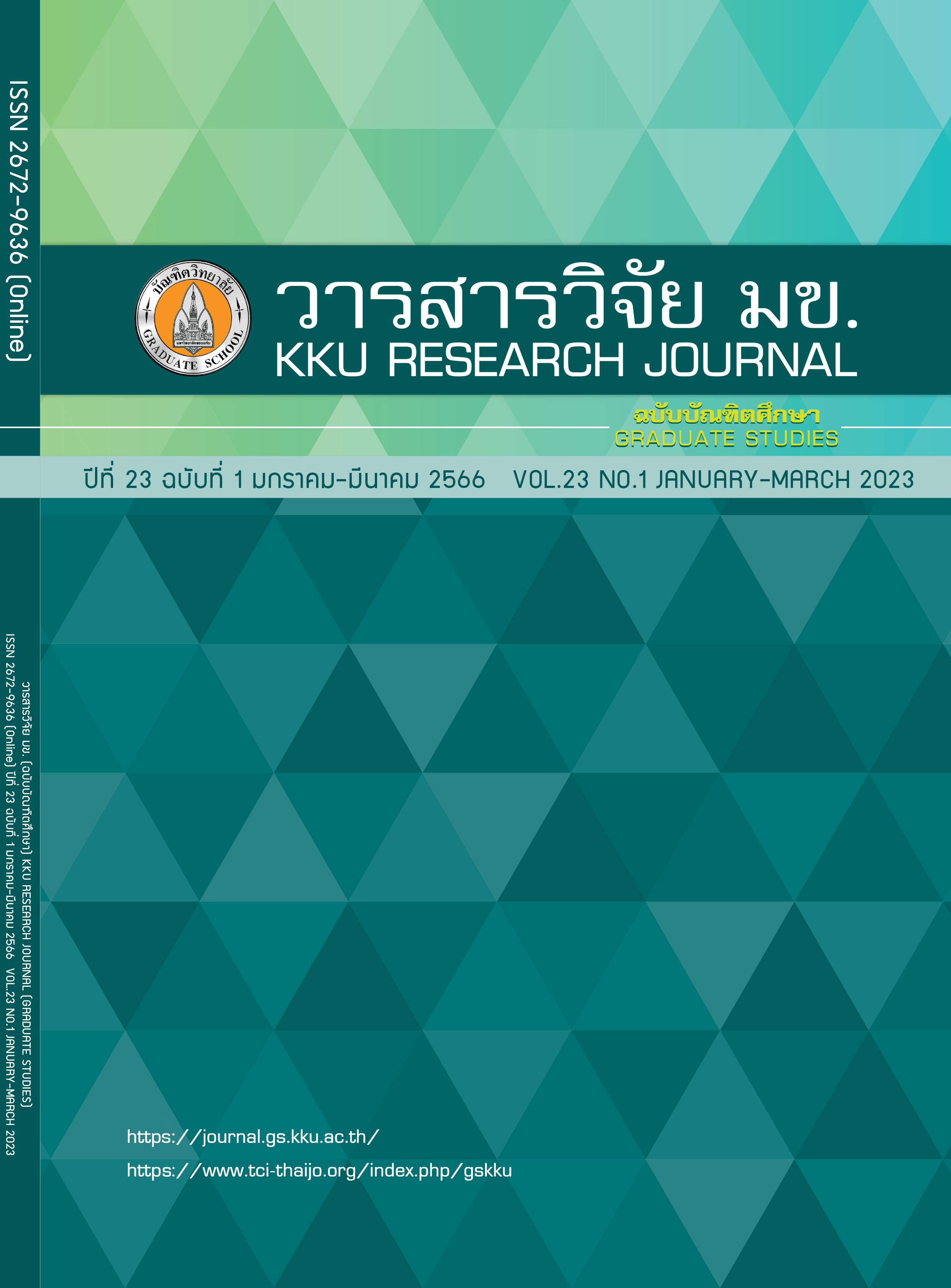Procept of Students in Problem-Solving Classroom
Keywords:
Procept, Problem-solving classroom, Lesson study and Open approachAbstract
This research aimed to analyze students’ procept in problem solving classroom by using qualitative research methods that emphasized analytic description and protocol analysis. The target group was 11 students of grade 5 in the first semester of the academic year 2020 in Banbungniambungkrinoonthahin School. The research instruments consisted of lesson plans of decimal multiplication, Messenger application, worksheet, and field notes. The result found that 3 components of the procept in the problem-solving classroom: 1) Symbols the students are represented by a variety of methods of addition and multiplication. 2) Process of computational concepts in solving problems was presented in various procedure which had specific steps to achieve multiplication process; and 3) Concept of multiplication are represented by various methods of solving symbolic problems. By thinking in a step-by-step manner, it produces important ideas from different methods of solving problems and forming a shared concept to be used to solve problems in new situations or create new knowledge.
References
National Council of Teachers of Mathematics (NCTM). Principles to Actions: Ensuring Mathematical Success for All. Reston, VA: NCTM; 2000.
Inprasitha M. Process of problem-solving in school mathematics. Khonkaen: the Centre for Research in Mathematics Education; 2014. Thai.
Inprasitha M. Open approach lesson study PLC in practice in real schools. Khonkaen: the Centre for Research in Mathematics Education; 2021. Thai
Makhanong A. Skills and mathematical processes development for development. Bangkok: Chulalongkorn University Press; 2010. Thai.
Shimizu S. Professional Development through Lesson Study: A Japan Case. Paper Presented at APEC International Symposium on Innovation and Good Practice for teaching and Learning Mathematics through Lesson Study, Khon Kaen Session; 2006.
Isoda M, Nakamura T. The Theory of Problem-Solving Approach. Mathematics Education Theories for Lesson Study: Problem Solving Approach and the Curriculum through Extension and Integration. Journal of Japan Society of Mathematical Education. 2010; 92(5): 31-50.
Inprasitha M. Reform process of learning Mathematics in schools focusing Mathematical process. Khonkaen: Khonkaen Publisher; 2003. Thai.
Tall D.Setting Lesson Study within A Long-Term Framework for Learning. Lesson Study Challenges in Mathematics Education. Singapore: World Scientific; 2015. p. 27-50.
Suthisung N. The Function of Abstraction Process for Students’ Concept Formation through Mathematical Activity in Classroom using Lesson Study and Open Approach [PhD thesis]. Khonkaen University; 2013.
Gray E M, Tall D O. Abstraction as a Natural Process of Mental Compression. Mathematics Education Research Journal. 2007; 19(2): 23–40.
Tall D. Compressing Mathematical Processes: The Theory of Procepts [Internet]. 2010 [updated 2010 Jan 4; cited 2021 Feb 20]. Available from http://www.tallfamily,Co.uk/david/ mathematical-growth/09.procepts-in arithmetic.pdf.
Gray E M, Tall D O. Duality, Ambiguity and Flexibility: A Perceptual View of Simple Arithmetic. The Journal for Research in Mathematics Education. 1994; 26(2): 1-24.
Inprasitha M. One Feature of Adaptive Lesson Study in Thailand-Designing Learning Unit. Proceedings of the 45th Korean Nation Meeting of Mathematical Education Dongkok University, Korea.Gyeongju:Dongkok University. 2010; 3(5): 193-206. Thai.
Inprasitha M. Blended Learning Classroom. Khonkaen: Khonkaen Publisher; 2021. Thai.
Inprasitha M. Lesson plan according to the guidelines KYOZAI KENKYU. Khonkaen: The Centre for Research in Mathematics Education; 2020. Thai.
Tall D. Developing theory of mathematical growth. ZDM Mathematics Education. 2007; (39): 145-54.
Wongyai W. Developing the Curriculum. Bangkok; 2000. Thai.
Downloads
Published
Issue
Section
License
Copyright (c) 2023 KKU Research Journal (Graduate Studies)

This work is licensed under a Creative Commons Attribution-NonCommercial-NoDerivatives 4.0 International License.



